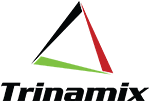
Information technology along with electronic and communication devices have always played a pivotal role in enhancing the global economy. They have been an integral part of every industry, helping them to improve business processes, achieve cost efficiencies, drive revenue growth and maintain a competitive advantage in the marketplace.
In one of my last articles “Deals, Temporary Price Reductions and Discounts”, I discussed how these three elements could greatly distort the information flow within the Retail Industry Supply Chain collaboration, and subsequently trigger the Bullwhip effect.
It is a common practice for big retailers to pile up the discounted stock received at the time of trade promotions and once the sale period is over, they sell the same products at a much higher price with the objective to make profits. Retailers do not place more replenishment orders with the distributors for the next few months. Though manufacturers want to use trade deals and discounts to simulate demand from the retailers, it only results in the retailers buying products in quantities that do not reflect the actual and immediate needs. This creates a misleading effect on manufacturer’s operations and on the total Supply Chain as it does not contribute to future Demand Planning.
Some of the approaches that can harmonize the above-discussed drawbacks are (Vendor Managed Inventory) VMI, (Collaborative, Planning, Forecasting, and Replenishment) CPFR, and (Point of Sale) POS data collection. Technology can provide the support that is needed to implement these supply chain strategies.
With the objective to enable greater visibility and control, the use of Internet of Things (IoT) is a major trend that has been garnering a lot of attention.
The internet of things (IoT) is a network of objects equipped with electronics, RFID tags, sensors, actuators, software etc. For IoT objects to interact with each other, they need to be augmented with an auto-ID technology, typically an RFID tag, so that the object is uniquely identifiable. Effective implementation of the IoT sensors and the software connected to devices, at the retailer’s site/shelf will automatically send the replenishment notifications to the manufacturer and provide real-time information to the complete the Supply Chain.
Manufacturers need to set up agreements with their retailers and as the consumption of the materials is recorded by IoT sensors on the shelf, the application will trigger the related order flows. We can collect accurate demand history and real-time information on daily sales, on an hourly basis. This eventually streamlines and speeds up the overall planning process.
IoT has the potential to capture real-time information end to end, from production, all the way to transportation and to the retailer’s shelf.
The typical implementation of IoT, comprises of the following processes:
- Device registration and the collection of data into the ERP.
- Data processing; the point at which information becomes insight.
- Connection of these insights to improve specific business processes, like VMI, POS collection, etc.
All being said, IoT implementation does not come without its challenges. The foremost hurdle is the need to have a unique IP address for all the millions of items connected to each other.
For such a large number of items, it is imperative to have a secured cloud-based system that can efficiently store billions of data records, along with a quick data retrieval process.
In conclusion, IoT in the retail sector is still at a conceptual phase. However, if the some of the above-discussed challenges were resolved, it would not be an exaggeration to say that IoT will most definitely revolutionize the entire business process in the coming years.
About the Author

Manmeet Walia has more than 10 years of experience managing and implementing Oracle (VCP/Fusion Cloud) and non-Oracle suite of products in Supply Chain Planning. His focus areas are advisory and solutions consulting for manufacturing organizations in Supply Chain Management, Customer Experience Management and Manufacturing Execution.

